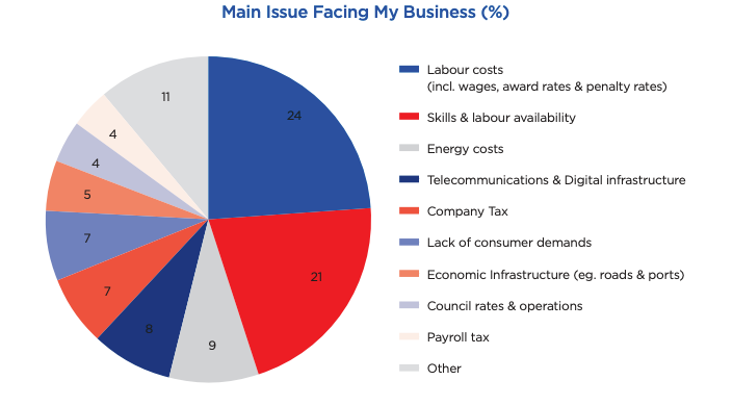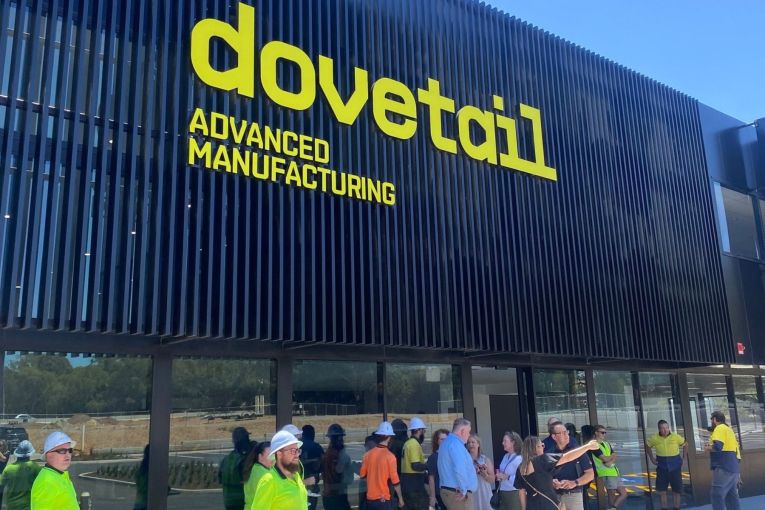Regional business confidence still near pandemic level
Regional business confidence in South Australia is less than one point higher than it was during the pandemic, with operators reporting labour costs and availability as key issues.

The South Australian Business Chambers’ annual Regional Voice survey indicated regional business confidence sat less than one point higher than in 2020, at 91.2 points, with a score of 100 representing neutral confidence.
Of respondents, 24 per cent said the main issue facing their business was the cost of labour, with businesses reporting they struggled to “keep up with market wage increases”.
“Our business is considering moving out of regional SA, employing skeleton overhead staff, refraining from training apprentices and decreasing to approximately three to five staff, with plans to stop trading if conditions don’t become more viable,” said one business owner, with 20–49 employees currently.

Energy costs were another concern, with Australia’s Small Business Retail Tariff Tracker noting in the six months to December 2023 electricity bills increased more in South Australia than any other area.
It said South Australian businesses had the highest annual electricity bills at approximately $10,427 – almost double that of their counterparts in Tasmania, at $5902.
You might like
Kangaroo Island saw the largest increase in business confidence, going up 27 points since 2020 to reach a score of 109.5.
But the Riverland saw the largest confidence decrease, dropping by 17.5 points since 2020.
It comes as Riverland grape growers continue to struggle with an ongoing industry slump, leaving growers in the area experiencing “a real sense of despair and loss of what to do”.
Of respondents, 26 per cent believed the South Australian economy would perform slightly weaker over the next 12 months, with 39 per cent feeling it would stay the same.
A lack of skills and labour availability was the second highest issue, with the 86 per cent of respondents in the construction industry listing it as their top issue, compared to 20 per cent in 2020.
The areas with the most significant labour shortages were the Far North and Yorke Peninsula, with 64 per cent of respondents in both areas reporting it as an issue.
Stay informed, daily
One trader in the Riverland blamed the shortage on an “increased emphasis on academic success [that] has reduced students moving into skills-based studies [reducing] the labour market”.

More than 90 per cent of respondents said the costs of both materials and overheads had increased in the six months leading up to the survey.
SA Business Chamber CEO Andrew Kay said the results “captured the sentiment that we have been hearing from our regional members”.
“[The results] are only slightly more optimistic than our 2020 survey, conducted amid the Covid-19 pandemic,” he said.
“There are consistent themes that have emerged…Businesses across the state are feeling the impact of a slowing economy and rising costs and are struggling to find and afford the workers they need, with lack of suitable housing compounding the issue.
“An increasing number of businesses are unable to make the hiring decisions they want simply because of inadequate housing supply.”
Kay said the survey showed the importance of grants and other assistance for regional businesses.
“Events and tourism activities that drive visitation to the regions and programs or grants that help businesses innovate and prosper make a genuine difference,” he said.
“These people are not looking for handouts. They are very resilient and come together to support their own communities and any investment that comes their way is put to good use.”









